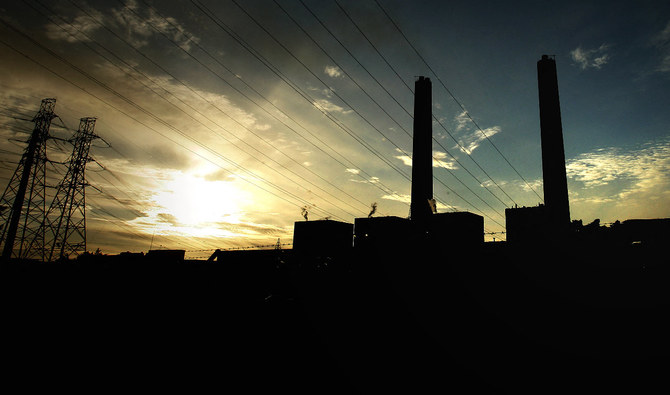Lebanon’s state electricity company EDL said on Thursday it risked a total blackout across the country by September-end as its fuel oil reserves dwindle.
Lebanon, in the throes of one of the worst economic meltdowns of modern history, has been plagued by worsening fuel shortages for the past few months with most Lebanese relying on private generators for power.
The company can generate less than 500 megawatts from fuel oil it secured through a deal with Iraq, it said in a statement.
It said its reserves of both Grade A and Grade B fuel oil had reached a critical point and had run out already for some plants that have now stopped production.
“The network already experienced total blackouts across the country seven times and if this continues there is a high risk of reaching total and complete blackout by end September,” the statement said.
Iraq signed an agreement in July allowing the cash-strapped Lebanese government to pay for 1 million tons of heavy fuel oil a year in goods and services.
The heavy fuel oil is not suitable for use in Lebanon, but it is exchanged in tenders for a suitable grade.
EDL held Lebanon’s central bank responsible for not securing dollars in exchange for “the surplus of local currency accumulated in the company’s account to generate power.”
Elsewhere, Hezbollah has continued to provide fuel for municipalities and hospitals hoping to procure Iranian diesel through the Al-Amana company, which is under US sanctions. The administration of a hospital in northern Lebanon denied having received fuel through Al-Amana.
Meanwhile, Prime Minister Najib Mikati headed to Paris on Thursday, his first official visit after the formation of the government, and is expected to meet French President Emmanuel Macron on Friday.
France exerted intense pressure on Lebanese politicians to form a government in line with the initiative launched by Macron in the aftermath of the Beirut blast, which rocked the country last August.
On the eve of Mikati’s visit to the French capital, the International Support Group for Lebanon welcomed the formation of the new government and the parliament’s vote of confidence in the administration and its program.

